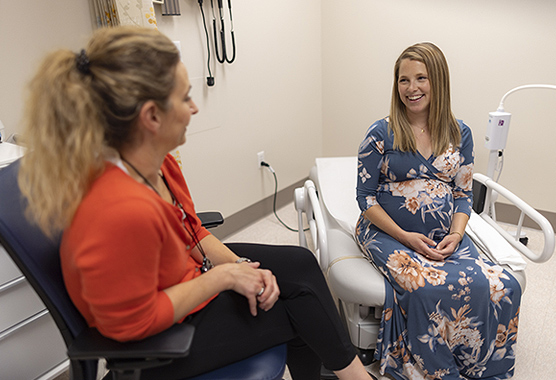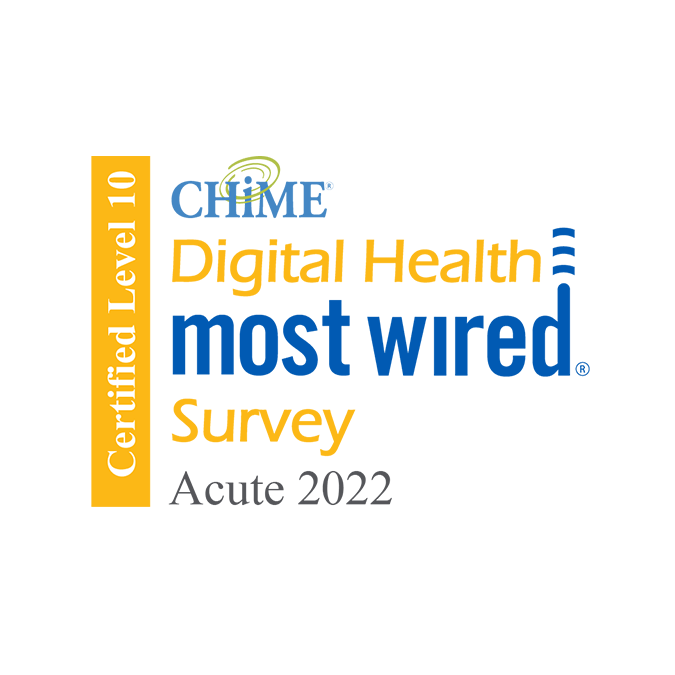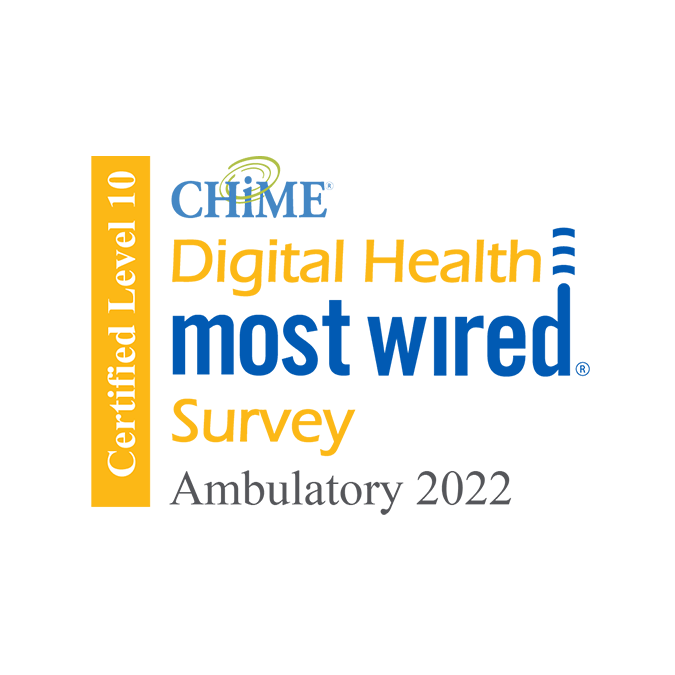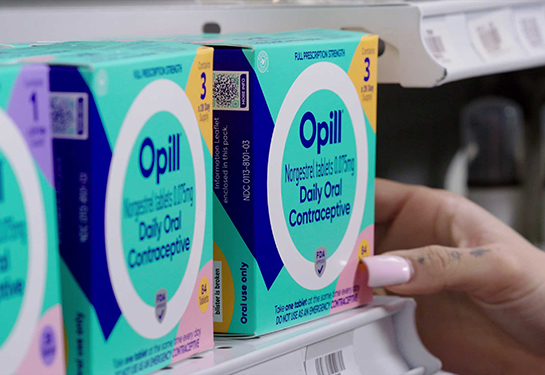Prenatal Testing and Screening
Our specialists offer the full range of prenatal tests to check the health of you and your baby throughout your pregnancy.
Medically reviewed by Laila Rhee, M.S. on Oct. 16, 2023.

Support for You During Pregnancy
UC Davis Health offers prenatal tests through the California Prenatal Screening Program and other reference laboratories. We then help you use the test results to make the best health care decisions for your family.
Types of Prenatal Screening and Testing
When you are pregnant, it is important to ensure your unborn baby receives the best care. Part of that care should include prenatal tests to check on your health and your baby’s.
There are three main types of prenatal tests:
- Routine tests: Routine tests check your health and occur throughout your pregnancy.
- Screening tests: These tests look at whether your baby has an increased chance of a birth defect (congenital anomaly) or genetic disorder.
- Diagnostic tests: Providers use these tests to confirm if your unborn baby has a congenital anomaly or genetic disorder
Risk Factors for Pregnancy Complications
We recommend routine prenatal testing for everyone. Your provider may also recommend further prenatal screening tests if you have any of these risk factors:
Age of the Mother and/or Father
The chance of chromosomal abnormalities increases the older the mother and father are during pregnancy. Chromosomes are packages that carry your genes.
Abnormal Pregnancy Ultrasound Results
You may need further testing to follow up on any unusual ultrasound findings.
Family History or Another Child With a Genetic Condition
Congenital abnormalities can run in families and increase the chance of passing along the condition.
Genetic Condition Carrier
If you know that you or your partner carry the genes for a genetic condition, your provider may suggest extra prenatal testing.
Medical Conditions
Health conditions such as autoimmune diseases, diabetes or previous gestational diabetes, high blood pressure or seizure disorders may increase your health risks during pregnancy. If you take certain medications or develop certain infections during pregnancy, those can also increase your risk for pregnancy complications.
Past Miscarriages or Stillbirths
A history of pregnancy-related complications may put you at a higher chance of having a baby with a congenital anomaly.
Abnormal Screening Test Results
Abnormal prenatal screening test results may require follow up with more screening tests or diagnostic tests.
Diagnosing Congenital Anomalies
We perform screening tests during your first trimester and second trimester) to look at your child’s chance for congenital anomalies. But these tests cannot confirm whether your child will be born with a condition.
We usually have results from screening tests within two weeks. If you have a positive result, we may recommend diagnostic tests to confirm whether your baby has a congenital anomaly.
The UC Davis Fetal Care and Treatment Center provides the full range of prenatal screening and diagnostic tests. Getting an early diagnosis can help you figure out the best care for you and your child. Learn more about our fetal care services.
Prenatal Screening and Diagnosis at UC Davis Health
Our caring specialists offer the complete range of prenatal screening services at all stages of your pregnancy. Our prenatal tests include:
Routine Test: Blood Pressure
Throughout your pregnancy, your provider tests your blood for signs of high blood pressure, especially after the 20th week of pregnancy (preeclampsia).
Routine Test: Blood Tests
We check your blood for signs of infection (hepatitis B and sexually transmitted infections (STIs) like HIV and syphilis) and anemia. We also check your blood type and Rh factor, which are proteins people have on their red blood cells.
Routine Test: Urine Tests
We test your urine for signs of preeclampsia, bladder infections and kidney infections.
Routine Test: Pregnancy Ultrasound
Sound waves show an image of your baby in your uterus and can show your baby’s position and shape. We also do an ultrasound to look for Down syndrome by checking the fluid at the back of your baby’s neck (nuchal translucency ultrasound).
First Trimester: Noninvasive Prenatal Screening (NIPS)
We offer NIPS testing at 10 weeks of pregnancy. Also known as cell-free DNA testing, we check your blood for your baby’s DNA. We then screen your baby’s DNA for genetic conditions including Down syndrome.
First Trimester: Chorionic Villus Sampling (CVS)
CVS is a diagnostic test. We may offer it between 10 and 13 weeks of pregnancy if you have an abnormal screening test result. We may also offer it if you are at higher chance of having a baby with a congenital or genetic anomaly. During it, we test a piece of your placenta (tissue that passes blood and nutrients to your unborn baby).
Second Trimester: Fetal Anatomy Ultrasound
We look at images of your baby between 18 to 20 weeks of pregnancy to check their size and look for any physical differences.
Second Trimester: Maternal Serum Alpha-Fetoprotein (MSAFP) Screen
We may offer you a blood test, also called the MSAFP blood test, between 15 and 21 weeks of pregnancy. The screen measures birth defect risk by looking at a protein level in your blood.
Second Trimester: Amniocentesis
Amniocentesis is a prenatal diagnostic test that we may offer between 15 and 20 weeks of pregnancy. We may suggest it if you had an abnormal screening test result. We may also offer it if you are at a higher chance of having a baby with a congenital anomaly or genetic disorder. During this, we look at the baby’s DNA and we may measure your baby’s protein levels by sampling amniotic fluid.
Who does it affect?
1 in 33Babies born in the U.S. have a congenital anomaly
Source: Centers for Disease Control and Prevention (CDC): Data & Statistics on Birth Defects
Request an Appointment
As Sacramento's No. 1 hospital, you'll benefit from unique advantages in primary care and specialty care. This includes prevention, diagnosis and treatment options from experts in 150 specialties.
Referring Physicians
To refer a patient, you can submit an electronic referral form or call.
800-4-UCDAVIS
Patients
For questions and appointment information
Consumer Resource Center
800-2-UCDAVIS

Ranked among the nation’s best hospitals
A U.S. News & World Report best hospital in cancer, cardiology, heart & vascular surgery, diabetes & endocrinology, ENT, geriatrics, neurology & neurosurgery, obstetrics & gynecology, and pulmonology & lung surgery.

Ranked among the nation’s best children’s hospitals
A U.S. News & World Report best children’s hospital in diabetes & endocrinology, nephrology, and orthopedics*. (*Together with Shriners Children’s)

Ranked Sacramento’s #1 hospital
Ranked Sacramento’s #1 hospital by U.S. News, and high-performing in COPD, colon cancer surgery, diabetes, heart attack, heart failure, hip fracture, hip replacement, kidney failure, leukemia, lymphoma & myeloma, lung cancer surgery, ovarian cancer surgery, pneumonia, prostate cancer surgery, stroke, TAVR, uterine cancer surgery, gastroenterology & GI surgery, and orthopedics.

The nation’s highest nursing honor
UC Davis Medical Center has received Magnet® recognition, the nation’s highest honor for nursing excellence.

“Most Wired” for acute care
UC Davis Health has been recognized as a level 10 out of 10 in the Digital Health “Most Wired” program from the College of Healthcare Information Management Executives (CHIME). The honor recognizes excellence in using technology to improve the delivery of care.

“Most Wired” for ambulatory care
UC Davis Health has been recognized as a level 10 out of 10 in the Digital Health “Most Wired” program from the College of Healthcare Information Management Executives (CHIME). The honor recognizes excellence in using technology to improve the delivery of care.

World-class cancer care
One of ~56 U.S. cancer centers designated “comprehensive” by the National Cancer Institute.

A leader in health care equality
For the 11th consecutive year, UC Davis Medical Center has been recognized as a “Leader in LGBTQ+ Healthcare Equality.”

